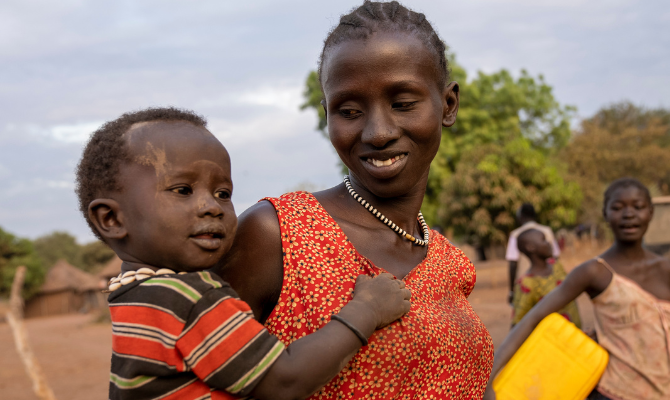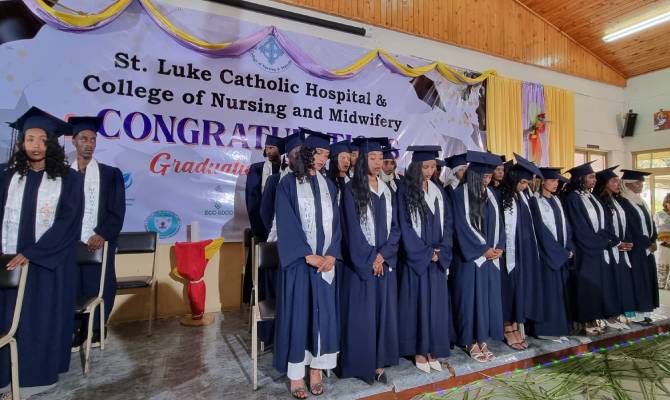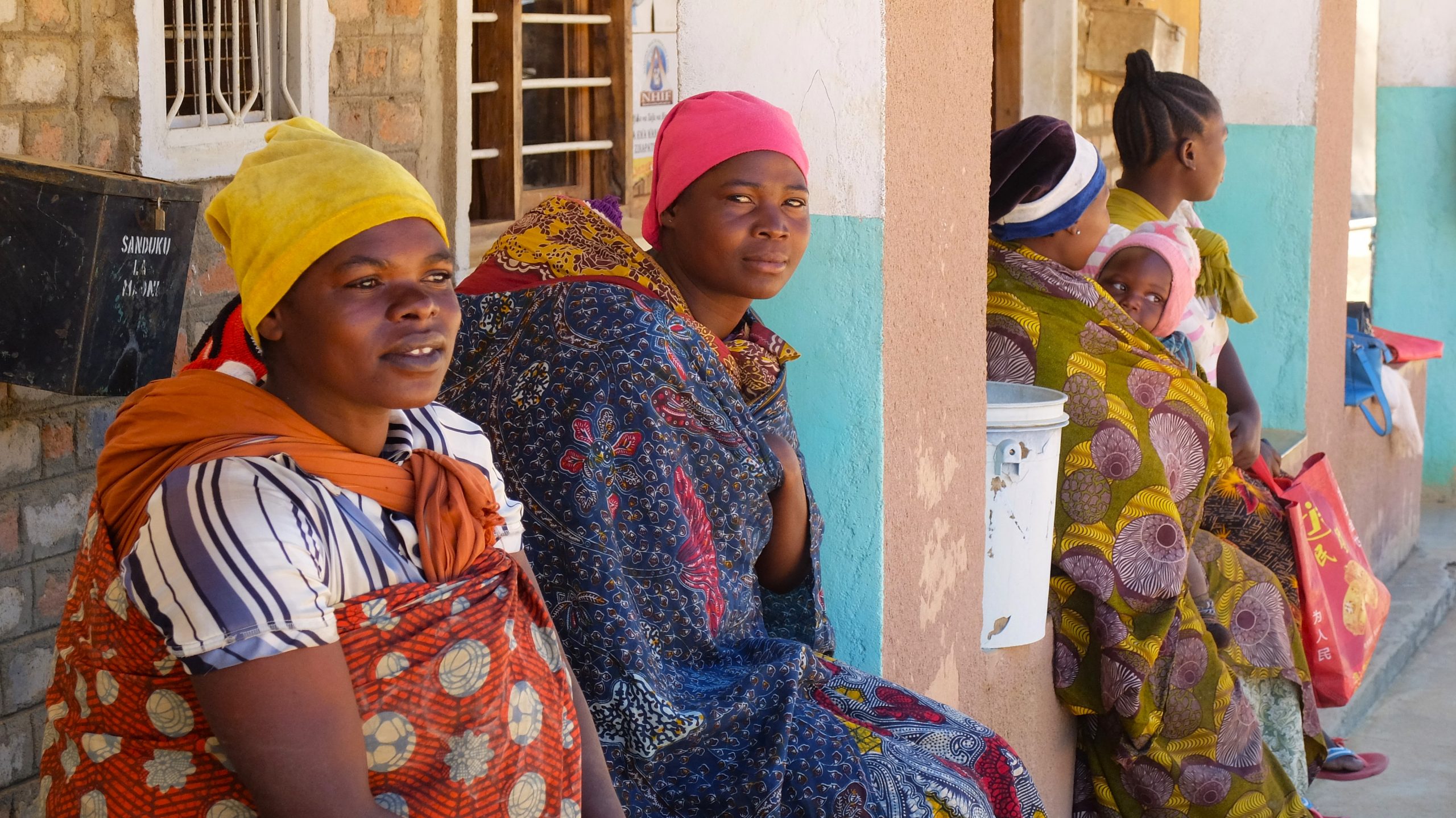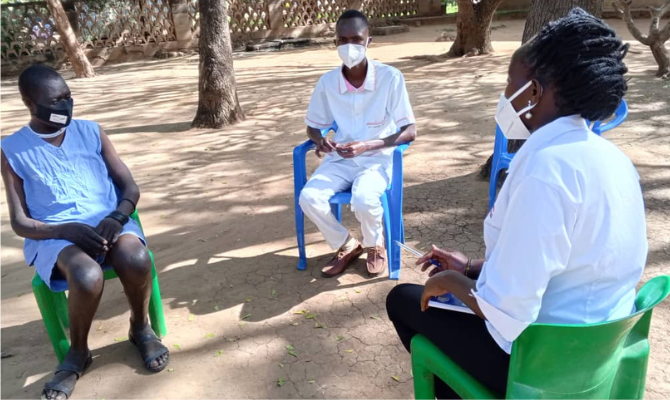Addressing the essential health and nutrition needs of the local and displaced population in South Sudan: this is the core objective of the “Resilience and Inclusion for the Health and Improved Living Conditions of Women, Children and Persons with Disabilities in Lakes State and Warrap State”.
Launched on April 1, 2025, this 12-month intervention, funded by the Italian Agency for Development Cooperation, is implemented by Doctors with Africa CUAMM in a consortium with Amref Health Africa ETS and CBM Italia ETS.
The impact of climatic events, with alternating severe floods and periods of drought, persistent internal insecurity, and the repercussions of the war in neighboring Sudan are making South Sudan, and the living conditions of its population, even more fragile. According to the latest data (November 2024) from the International Organization for Migration (IOM) and the Office for the Coordination of Humanitarian Affairs (OCHA), there are 1,844,914 internally displaced persons in South Sudan. UNICEF estimates that 7.7 million people in the country, 57% of the population, are at risk of severe food insecurity, which is expected to worsen further during the April to July season. Among them are 2.1 million children under the age of five who are projected to suffer from moderate or severe acute malnutrition by July 2025, and 1.1 million pregnant or breastfeeding women. This only exacerbates the already precarious health conditions of the population: OCHA estimates that 6.3 million people are in need of humanitarian health interventions, as there is no sufficiently structured system to ensure regular basic and emergency healthcare.
The intervention primarily aims to guarantee equitable and inclusive access to quality health services, particularly for mothers and children. Four hospitals are involved: in the Lakes State, Rumbek State Hospital and Yirol County Hospital with their respective catchment areas; in the Warrap State, Tonji County Hospital and Marial Lou Hospital. Support will be provided for the effective functioning of maternal and child health services and wards, ensuring the supply of medicines, consumables, and equipment, as well as guaranteeing the renovation and maintenance of dedicated infrastructure. The project also intends to strengthen and support the referral system for obstetric and pediatric emergencies.
Investment will be made in the training and support of existing personnel, accompanied by a qualified technical team that can facilitate the effectiveness and continuity of services, as well as periodic quality assessments and monitoring. Particular attention will be dedicated to training on the prevention, early detection, and management of physical and cognitive disabilities in maternal and newborn care.
Persons with disabilities, women, and children will also be at the center of a set of activities designed to improve food and nutritional security for the most vulnerable groups, with the aim of promoting their resilience. In the Lakes State, in collaboration with the local NGO African Development Aid (ADA), the project promotes nutritional education sessions and cooking demonstrations at antenatal care services. Awareness-raising will be further strengthened through the creation of mother support groups, community self-help structures, and spaces for sharing information and advice among women, including women with disabilities. These same groups will be involved in the creation of community gardens and training on good sustainable agricultural practices, thereby promoting women’s socio-economic resilience.
This mosaic of activities demonstrates how crucial cooperation and synergy among partners are to ensure a more equitable and inclusive future for all.





